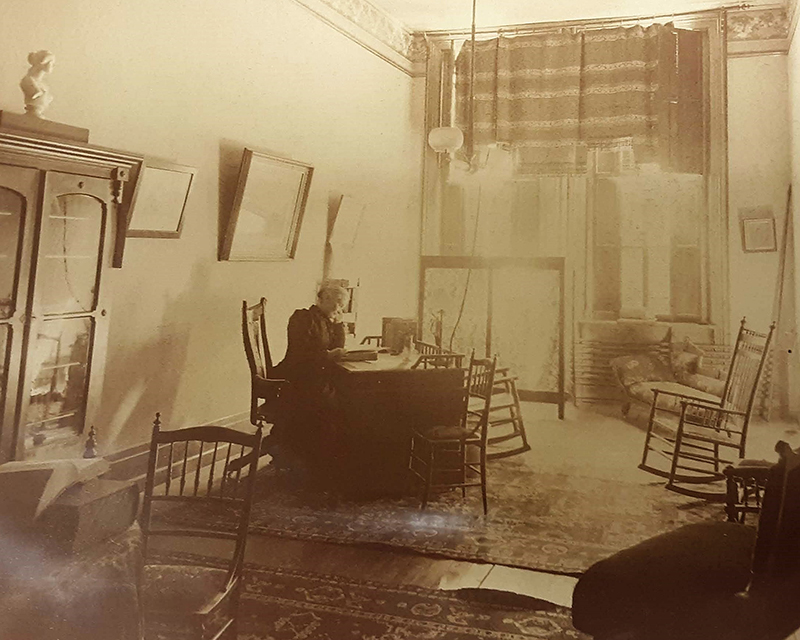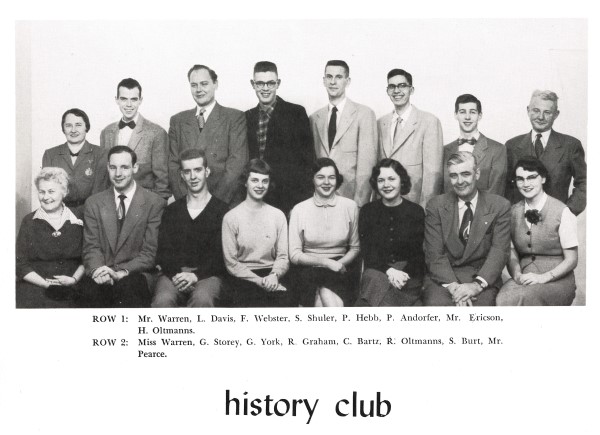About
The mission of the History Section is to increase historical knowledge and understanding and to prepare our students for lives of learning, citizenship, and professional success. The expertise of our thirteen professors and three full-time lecturers enables us to offer courses covering a broad range of historical topics every semester. We regularly offer classes on the history of Asia, the Middle East, Africa, Europe, Latin America, the United States, and Canada, as well as courses in African-American history, women's history, and LGBTQ+ history. Course offerings reflect faculty expertise in military history, social & intellectual history, the history of religion, and state & local history. We make these classes available in a variety of formats, including online, weekend, one week, evening, and travel classes.
We limit enrollment to 25 students in our upper-level undergraduate classes and 15 students in our graduate classes. Professors are also available outside of the classroom for everything from advice on research to the letters of recommendation so important to their future success. These contacts often continue long after students graduate.
A Brief History of History at EMU
History has been taught at EMU since 1853 when the university first opened its doors as the Michigan State Normal School. The first course offered was titled “Constitution of the United States,” and by 1870 history was a requirement in the Common School Course. One year later, Anna M. Cutcheon became the first faculty member assigned to teach a history course at the Normal School. The first official statement of the History program announced: “in history, few dates are required.” Instead, “we aim to trace the connection between cause and effect, and to become acquainted not only with the facts, but with the philosophy of history.”


Professor Julia Anne King at work in her home office.
In 1888, History was formally organized as a department of instruction at the school, headed by the illustrious Julia Anne King. King was born in a log cabin near Milan and received her teaching certificate from the Normal School in 1858. The Detroit Free Press named her “unquestionably the greatest woman educator Michigan has ever had.” During King’s twenty-seven years of leadership, the History Department added ancient and modern European history to its existing offerings in US history. King also added courses in sociology and political science.
Bertha Buell joined the History faculty in 1899. Buell held degrees from the University of Michigan and Radcliffe College, and she occasionally acted as department head in the absence of Julia King. Buell was active on campus, helping to organize a local chapter of the League of Women Voters. She also promoted student housing with the help of Estelle Downing of the English Department and Dean Lydia Jones.
Until 1913, all History faculty at Michigan State Normal College (elevated in 1899) were female. That year, Earl G. Fuller was hired, followed one year later by Carl E. Pray who took over as department head. Pray was born in Eaton County and earned his bachelor’s degree at Olivet College and master’s at the University of Wisconsin. He wrote extensively on topics of Michigan history and had a particular interest in US immigration. Pray was honored with a bronze bust donated by the Class of 1931 who praised “the simplicity and humanity at all times evident” in the character of “Daddy Pray.” Pray was the cousin of MSNC President Charles McKenny (1912-33). Pray retired in 1937.


The History Club, from the 1953 Aurora yearbook.
The growth of the History program mirrored the growth of the institution—reorganized as Eastern Michigan College in 1956 and Eastern Michigan University in 1959. Under the leadership of Simon E. Fagerstrom (1940-58), the department faculty expanded from twelve to twenty-four, while the variety of courses increased as well. In the new Department of History and Social Science, students were able to concentrate in economics, political science, or sociology. Department Head Donald Drummond enlarged the faculty again by hiring Manuel Bilsky to develop courses in philosophy in the 1960s.
In 1969, the Department of History and Social Science departed from Welch Hall to take up residence on the seventh floor of Pray-Harrold where it remains today. Economics, political science, and sociology all departed the department in the 1970s to become independent departments, while philosophy remained. The unit’s name was subsequently changed to the Department of History and Philosophy, although the two sections have long been functionally independent.
Information from Egbert R. Isbell, A History of Eastern Michigan University, 1849-1965 (Ypsilanti: Eastern Michigan University Press, 1971). Images are from the EMU Archives.

